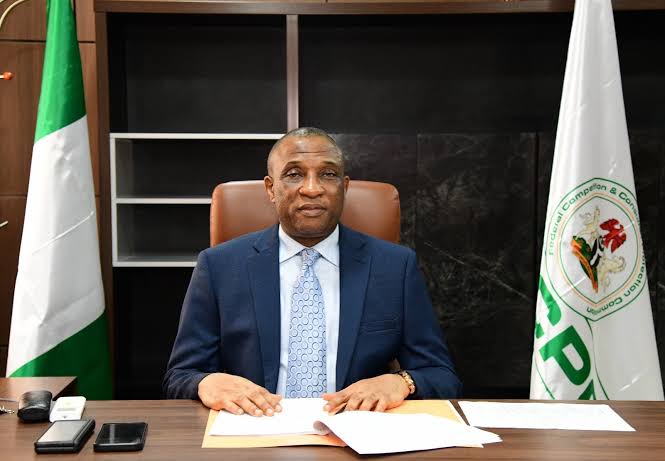The Federal Competition and Consumer Protection Commission (FCCPC) has directed Ikeja and Eko Distribution companies to immediately halt their plans to replace existing Unistar meters of their consumers from this month, November, for non-compliance with the Nigerian Electricity Regulatory Commission’s (NERC) order.
The commission’s Executive Vice Chairman and Chief Executive Officer, Mr. Tunji Bello gave the directive on Tuesday at a stakeholders’ meeting held at the commission’s headquarters in Abuja.
The directive was a response to a recent announcement by one of the DisCos regarding the phase-out of the Unistar prepaid meter model, effective November 14, 2024, a development that has caused considerable anxiety among consumers.
The FCCPC boss described the announcement as lacking critical information regarding whether consumers would be liable for the replacement costs, thereby raising fears that the transition could lead to arbitrary estimated billing and undue financial strain on consumers.
Bello, at the meeting, attended by representatives from the Nigerian Electricity Regulatory Commission (NERC), the Nigerian Electricity Management Services Agency (NEMSA), various electricity distribution companies (DISCOs) and Unistar Hitech Systems Limited, also urged electric distribution companies (DISCOs) to always adhere strictly to industry regulations while billing unmetered consumers.
He stressed the need for the Discos to always carry energy consumers along before classifying them into bands, so as to avoid unnecessary squabbles.
He expressed concern over practices that require consumers to pay upfront for meters without reimbursement, a direct violation of the NERC Meter Asset Provider and National Mass Metering Regulations 2021.
The FCCPC’s boss also decried the art of frequently placing consumers with faulty meters on estimated billing, despite NERC’s prohibition, by the Discos.
He cited a case received by FCCPC from an Ikeja Electric customer, who had expressed frustration at being asked to replace a functioning meter at a significant personal cost.
To prevent potential exploitation, the FCCPC boss, therefore, directed that meter replacement processes be conducted transparently, with costs borne by the DisCos and not passed on to consumers.
Bello also expressed the commission’s readiness to enforce strict compliance with the regulatory requirements to protect consumers from arbitrary charges and estimated billing.
The FCCPC’s directive to discontinue the replacement process stemmed from the DisCos’ non-compliance with NERC’s “Order on Structured Replacement of Faulty and Obsolete End-user Customer Meters in the Nigerian Electricity Supply Industry.”
The NERC’s Order mandates that DisCos must prioritise metering for unmetered customers under the National Mass Metering Programme (NMMP) and follow strict guidelines for replacing faulty or obsolete meters.
“These guidelines require DisCos to inspect faulty meters and provide detailed information in the replacement notice, including the inspection date, the inspecting officer’s credentials, the identified fault, and the scheduled replacement date.
“Furthermore, DisCos are prohibited from placing customers on estimated billing due to delays in meter replacement, as new meters must be installed immediately upon removing any faulty or obsolete unit,” the Commission stated.
READ MORE FROM: NIGERIAN TRIBUNE
